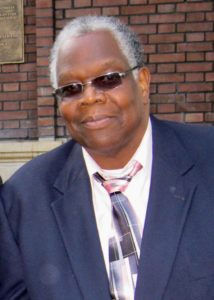SURVIVOR STORY: McKinley Hackett
- Aug 2, 2022
- 2 min read
Updated: Feb 21, 2023
fIND OUT MORE ABOUT HeartBrother McKinley Hackett's new book: “Meeting Death and Learning to Live..."

HeartBrother McKinley Hackett is sharing the harrowing story of his heart failure diagnosis and transplant in a new book, “Meeting Death and Learning to Live: An Inspirational Guide for Overcoming Extreme Challenges.” After struggling with shortness of breath for months, Hackett was diagnosed with heart failure during an ER visit in February 2021. He was 54 years old. On his second trip to the ER a month later, he was transferred to Tufts Medical Center, where doctors told him his heart’s ejection fraction was less than 10%. An ejection fraction in a healthy heart is 50-70%.
“My doctor told me my heart wasn’t even pumping anymore. It was wriggling,” Hackett said. “That means organs shut down and death is a realistic outcome.”
Hackett was put on the transplant list and stayed at Tufts for two months until a heart became available. During that time, he started writing and developing a new life focus and plan.
“Having the experience of coming close to death changed my perspective and inspired me to empower others to become the next best version of themselves and overcome the daily challenges they face in their lives.”
The key to it all, Hackett says, is positivity. “You have to jettison everything negative in your life.”

You don’t have to be a transplant patient to appreciate the book, Hackett points out.. he said. “I made charts and graphs. My thing is data. If I had accurate data, I could get back to as full a life as possible.”
But it wasn’t easy. Hackett had lost 70 pounds in the hospital. “I could walk up two steps, three at best. Soon, I started walking two to three miles a day. After six months, I was out playing golf, walking eight miles. I had concrete goals.”
Hackett shared his writing with friends, who encouraged him to publish a book. “In the first 50 days, I sold 200 copies,” he said. “There’s been a lot of positivity around it.”
You don’t have to be a transplant patient to appreciate the book, Hackett says.
“Everyone can relate to facing some kind of catastrophe, big or small,” he wrote in the book. “Dire medical diagnosis, divorce, addiction, PTSD and abusive relationships are examples of traumatic situations that can be the catalyst for change.”
Looking ahead, Hackett, who is married with two grown children, hopes to share his message with audiences as a motivational speaker. He’s also looking forward to volunteering with the HeartBrothers Foundation.
“I like that it offers support, education, and awareness,” he said.
Don’t miss a heartbeat—subscribe to the HeartBrothers e-mail list, engage with us on Facebook, Instagram, Twitter, YouTube, and LinkedIn, and please invite others to join our community.




Comments